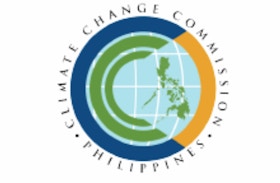PANDAN, ANTIQUE, The Philippines September 11, 2019—Northern Panay in the Philippines’ Visayas island will be the first region in the country to benefit from a climate knowledge-sharing, support and advocacy consortium of national government agencies, local government units (LGUs), and higher education institutions (HEIs).
The Northern Panay Climate Change Consortium (NPCCC) was officially launched at the end of the five-day Climate Resilience Field School Capacity Building Training for the Province of Antique conducted in the Municipality of Pandan.
“Risk assessment is fundamental in coming up with a science and risk-based local climate change action plan and other local plans. The event today is symbolic, because we are collaborating with national government agencies and the academe to really serve the LGUs and the local communities who are actually in the frontline of climate change impacts,” CCC Secretary Emmanuel De Guzman during the launch.

The Climate Change Commission-Climate Change Office (CCC), together with the University of Antique (UA), Aklan State University (ASU), Northwestern Visayan Colleges (NVC), Department Of Interior And Local Government–Regional Office VI (DILG-RO VI), Commission on Higher Education—Regional Office VI (CHED-RO VI), Department of Education – Regional Office VI (CHED-RO VI), Department of Agriculture–Regional Office VI (DA-RFOVI) signed a Memorandum of Understanding (MOU) establishing the Northern Panay Climate Consortium.
The CCC facilitated the establishment of the NPCCC to further strengthen the cooperation between national and local governments and the science and academic community on mainstreaming climate change adaptation and mitigation in local development planning in the Northern Panay Region.
The NPCCC will model the way for the formation of more regional multi-stakeholder partnerships that will accelerate the delivery of capacity building and technical assistance to LGUs, the private business sector, and other entities in key vulnerable areas in the country.
Members of the NPCCC agreed that bringing climate science closer to communities to inform their policies drives relevant and tangible actions, both at the national and grassroots level.
“Coming-up with a risk-based and evidence-based assessment entails strong commitment from the partners, and the LGUs as beneficiaries of the intervention to gather numerous data development of vulnerability and risk maps and analysing the assessment result to properly allocate their very limited financial resources to programs and projects that would directly or indirectly respond to or mitigate climate change and its impacts,” Engr. Carmelo Orbista, Regional Director of Department of Interior and Local Government (DILG) Region VI, said.
“We hope to expand the DILG’s partnership to other HEIs and SUCs in the region given their expertise in sciences and research,” he added.
“The role of HEIs is to prepare the society to adapt to the impacts of climate disruptions through our research and education on adaptation strategies. Higher education should also take the leadership role in climate mitigation and adaptations. HEIs should make the fundamental contributions to climate adaptation efforts by identifying the most pressing climate impacts related to specific communities, especially in relation to the most vulnerable populations in our society,” said Dr. Anna Mae Relingo, Vice President for Academic Affairs of the Aklan State University.
The NPCCC is composed of the CCC, DILG Region VI, Commission on Higher Education Region VI, Department of Education Region VI, Ms. Remelyn Recoter, Department of Agriculture Region VI, Northwestern Visayan Colleges, Aklan State University, and University of Antique.
About the Climate Change Commission
The Climate Change Commission is the lead policy-making body of the government tasked to coordinate, monitor and evaluate government programs and ensure mainstreaming of climate change in national, local, and sectorial development plans towards a climate-resilient and climate-smart Philippines. www.climate.gov.ph
Publish your content with EB Publishing
It's about who you reach. Get your news, events, jobs and thought leadership seen by those who matter to you.











